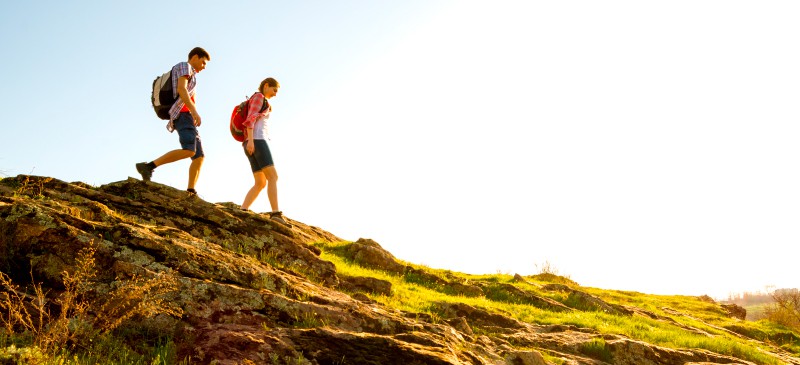This Dr. Axe content is medically reviewed or fact checked to ensure factually accurate information.
With strict editorial sourcing guidelines, we only link to academic research institutions, reputable media sites and, when research is available, medically peer-reviewed studies. Note that the numbers in parentheses (1, 2, etc.) are clickable links to these studies.
The information in our articles is NOT intended to replace a one-on-one relationship with a qualified health care professional and is not intended as medical advice.
This article is based on scientific evidence, written by experts and fact checked by our trained editorial staff. Note that the numbers in parentheses (1, 2, etc.) are clickable links to medically peer-reviewed studies.
Our team includes licensed nutritionists and dietitians, certified health education specialists, as well as certified strength and conditioning specialists, personal trainers and corrective exercise specialists. Our team aims to be not only thorough with its research, but also objective and unbiased.
The information in our articles is NOT intended to replace a one-on-one relationship with a qualified health care professional and is not intended as medical advice.
Benefits of Hiking for the Body and Mind
October 6, 2021

Whether you’re already an avid hiker or mostly new to hiking, you’re probably curious about how this type of exercise can benefit both your physical and mental health. The good news is there are plenty of health benefits of hiking.
Does hiking tone your body? Is hiking a good way to lose weight?
According to the American Hiking Society, “Countless studies and research have consistently shown that regular exercise not only improves our overall health and fitness, but lengthens and improves the quality of our lives.”
Because it’s considered a “whole body workout,” plus a way to practice mindfulness, studies show that benefits of hiking include building strength in your lower body (considered a great leg workout), relieving stress, helping prevent obesity and heart disease, and more.
What Is Hiking?
Hiking is a recreational activity in which you walk in nature. As opposed to commuting by foot, hiking is all about walking for pleasure and also for exercise.
It’s thought to be one of the world’s most popular outdoor activities.
Going hiking usually involves long and sometimes vigorous walks, typically on trails or footpaths in the countryside, on outdoor hills or on mountains — however it can also include easier hikes on flatter trails that are manmade. A “trek” is a bit different than a hike because it’s more challenging, requiring a longer journey that is completed over a number of days or even weeks.
You can hike just about anywhere that has hills. In the U.S., some of the most popular hiking destinations include Yosemite National Park, Yellowstone National Park, Glacier National Park and Zion National Park.
Benefits of Hiking
What does hiking do for your body? Becoming a hiker can contribute to your health in a number of ways, including by toning your legs and back and reducing stress. Here’s more about the many benefits of hiking (when done safely of course!):
1. Builds Strength in Your Lower Body and Back
Hiking is a form of low-impact aerobic exercise that can help build stronger muscles and bones, especially in your legs and back. If you do lots of walking, stepping and climbing uphill, it’s even better for increasing strength and muscle mass, and when you walk on uneven surfaces, you engage your core and improve stability.
This form of exercise is also effective at helping improve your balance and range of motion, since tougher climbs can force you to stand periodically on one leg, lunge forward and so on.
2. Boosts Stamina and Heart Health
Regular physical exercise reduces the risk of dying of coronary heart disease and decreases the risk for a number of other chronic health conditions too.
For example, exercising regularly, such as by hiking, lowers blood pressure and may help prevent some people from developing colon cancer, diabetes and high cholesterol.
Most of these positive effects are due to hiking’s ability to get your heart rate up and work your lungs, improving circulation and oxygenation. Hiking can also help decrease inflammation tied to stress and reduce weight gain, which benefits overall health.
3. May Help You Lose Weight
Like other forms of exercise, benefits of hiking include helping you to control your weight, such as by dropping excess body fat or preventing unwanted weight gain.
Research demonstrates that, on average, you can burn about 80 to 100 calories for every mile you walk. (You use even more energy if you have a higher body mass or if you walk uphill.) If you hike for about an hour at a moderate to fast pace, you can burn several hundred calories, which can be beneficial for your waistline and overall body composition.
4. Helps Reduce Stress
As Greater Good Magazine explains, “The experience of hiking is unique, research suggests, conveying benefits beyond what you receive from typical exercise. Not only does it oxygenate your heart, it helps keep your mind sharper, your body calmer, your creativity more alive, and your relationships happier.”
Research suggests that there are synergistic effects of physical activity and time spent in nature, meaning the two are even more powerful when done together. Studies shows that spending time in nature provides most people with mental relief from stress, depression and anxiety symptoms, especially if they are also exercising or being active while outdoors, such as in “green spaces.”
Hiking (and simply walking too) releases “feel good” chemicals in our bodies, including endorphins, that are known to lift our moods and fight pain. Exercise plus time outdoors also has various other effects on the brain that decrease tension, depression, rumination and worry and improve problem solving and feelings of connectedness (“the sense of being small in the presence of something bigger than yourself”).
Becoming a hiker might also improve your sleep by making you feel more calm and tired, which translates to a clearer mind and greater energy the following day.
5. Supports Brain Health and Cognitive Function
Not only can hiking boost your mood, but it’s also associated with other mental health improvements, such as greater creativity, memory recall and problem solving.
A number of studies have found that exercising outdoors can lead to more mindfulness, greater self-awareness and enhanced sensory perception (of sights, smells and feelings).
Researchers have uncovered that hiking uses parts of your brain designed to help you navigate through your environment, including the retrosplenial cortex and the hippocampus, which help aid in memory.
There can also be a beneficial social component to hiking if you choose to get others involved, such as by hiking with a partner or joining a group that regularly hikes together. This can foster a greater sense of connection and decrease loneliness, which are tied to better mental health.
Some studies have even found that exercising outdoors can help your relationships by making you more empathic, helpful, open-minded and generous.
6. Decreases the Risk for Osteoarthritis and Bone Density Loss
In addition to making you stronger, benefits of hiking also extend to your bones, joints and connective tissues. Hiking is low-impact enough that it shouldn’t add lots of stress and strain to your joints, but it’s a form of “weight-bearing exercise” — which means it strengthens your bones.
Weight-bearing exercise can help relieve pain associated with osteoarthritis, as long as you don’t overdo it. It’s also recommended for prevention of osteoporosis and loss of bone density, which can increase susceptibility to breaks and fractures.
You can make hiking more weight-bearing by rucking while hiking, which includes wearing a rucksack with added weight to add more resistance.
How Much to Do + Potential Risks
The type of hiking that’s best for you to do depends on your skill level and general fitness. People who are more active and stable in their lower bodies can benefit from inclining up steeper hills and trails, while those who are newer to hiking are better off sticking to flatter dirt paths and less vigorous trails.
To reduce your risk for falling or getting injured always wear high-quality shoes when hiking. Be careful about hiking on slippery dirt or mud, very rocky paths, or under overhanging branches.
Follow trail markers if possible, and be aware of wild animals that may be in the area crossing your path.
If you’re going on extended hikes and treks, be careful to prepare ahead of time with the supplies you’ll need, such as water, and aways practice “good hygiene” (defined as routine cleaning of water, cooking utensils and cleaning your hands often).
The National Park Service’s website is a great resource for finding all types of hiking trails. There are more than 400 national parks for you explore across the country, depending on your experience and preferences.
Is it good to hike every day?
Assuming you aren’t suffering from injuries, feeling exhausted or straining yourself too much, hiking (and simply walking uphill) can be a good type of exercise to do just about every day. When it comes to more vigorous, long hikes, give yourself some time to rest between hikes to help your muscles and joints recover.
Overall it’s best to listen to your body to avoid overtraining. However, experienced hikers can typically do some form of hiking daily without hurting themselves.
Conclusion
- Whether you’re an experienced hiker or new to this type of exercise, you can benefit both physically and mentally from hiking. Not only does it help improve aerobic fitness and endurance, but it’s also a natural stress reliever.
- Benefits of hiking can include improved resilience against anxiety and depression, strength, bone density, balance, heart health, and weight management.
- There are endless places to go hiking depending on your skill level, such as on trails, mountains, steep hills, etc. Start with easier, shorter hikes, and increase the intensity and duration as your body adjusts.




